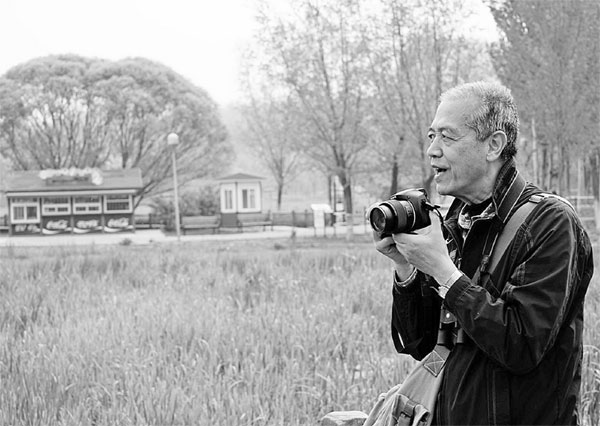

 |
|
Lei Hong, a 59-year-old Beijing native who has been a bird watcher for 20 years. [Photo provided to China Daily] |
Fewer owls can now be seen in the Temple of Heaven, says LeiHong, a 59-year-old Beijing native who has been a birdwatcher for 20 years.
He found only two or three owls in the imperial garden last winter, compared to about 30 a decade ago, which suggests that the owls' food chain might have been broken.
The park authorities have no official statistics, but fellow ornithologists agree with Lei.
Urban expansion, lack of food and a deteriorating environment are all possible factors in the dwindling numbers of migratory birds visiting Beijing from November to April, says Zhao Xinru, assistant professor of Zoology at Beijing Normal University.
"The Temple of Heaven should be a good habitat for birds as it has many tall cypresses with thick branches, where owls like to perch," he says.
But today, "the woody garden has become a lonely island in a concrete forest".
Also, the trees are regularly trimmed so that falling branches don't hit park visitors. The lack of branches makes it difficult for owls to hide and sleep.
A campaign against rats aimed at protecting ancient buildings has also destroyed the owl's staple food, says Zhao, who is also a member of China Ornithological Society.
The creatures spit out what they cannot digest that helps people trace them. But Lei found more bird feathers than rat bones in the owls' saliva.
Zhao notes that the breeding grounds may also have problems. The owls fly from the north to spend winter in Beijing. If the local environment is deteriorating or changing, there will be fewer breeding populations and fewer in the winter ground.
"We don't have any data to support that though," he adds," because the investigation will be long and laborious, and it requires sustained work by researchers.
"Scientific studies need the contribution of both birdwatchers and civil environment organizations."
Lei says the owl is "a divine bird", not only because it has inspired engineers to imitate its out standing night vision and stealth flying, but also because of its special appearance.
"It is hard to recognize as the feathers on back of its head are very like its face," he says.
In fact, the owl was regarded as the Divine Bird as far back as the Qing Dynasty (1644-1911). In the Forbidden City, the court even set up a "divine pole", on the top of which was a pot full of food to feed the owls. This gradually attracted a huge number of them flocking together around the imperial city.
Yet interestingly, Han Chinese see owls as a bad omen. An old proverb goes, "Owls hooting, death coming."
But for Lei , "It is ridiculous. It is superstition."